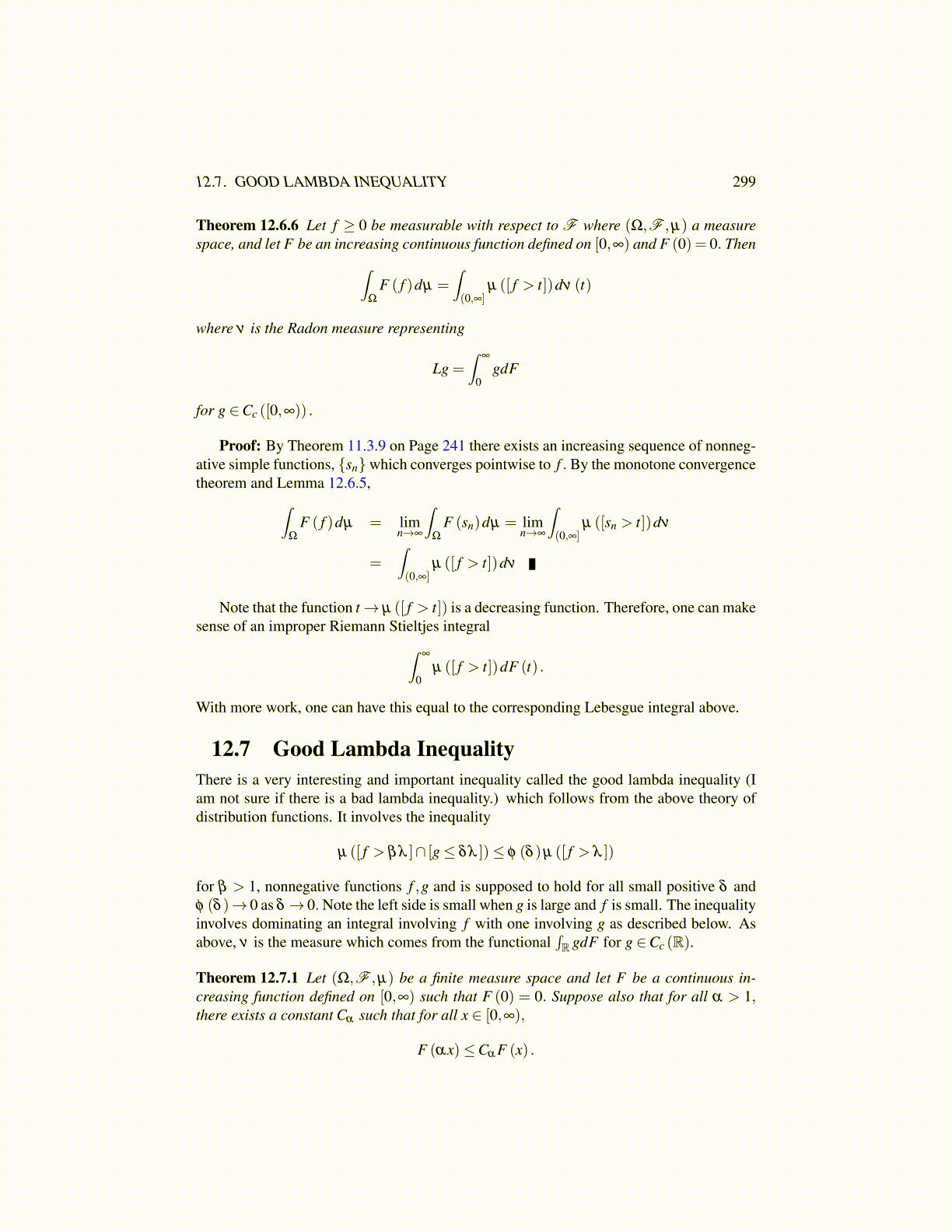
12.7. GOOD LAMBDA INEQUALITY 299
Theorem 12.6.6 Let f ≥ 0 be measurable with respect to F where (Ω,F ,µ) a measurespace, and let F be an increasing continuous function defined on [0,∞) and F (0) = 0. Then∫
Ω
F ( f )dµ =∫(0,∞]
µ ([ f > t])dν (t)
where ν is the Radon measure representing
Lg =∫
∞
0gdF
for g ∈Cc ([0,∞)) .
Proof: By Theorem 11.3.9 on Page 241 there exists an increasing sequence of nonneg-ative simple functions, {sn}which converges pointwise to f . By the monotone convergencetheorem and Lemma 12.6.5,∫
Ω
F ( f )dµ = limn→∞
∫Ω
F (sn)dµ = limn→∞
∫(0,∞]
µ ([sn > t])dν
=∫(0,∞]
µ ([ f > t])dν
Note that the function t→ µ ([ f > t]) is a decreasing function. Therefore, one can makesense of an improper Riemann Stieltjes integral∫
∞
0µ ([ f > t])dF (t) .
With more work, one can have this equal to the corresponding Lebesgue integral above.
12.7 Good Lambda InequalityThere is a very interesting and important inequality called the good lambda inequality (Iam not sure if there is a bad lambda inequality.) which follows from the above theory ofdistribution functions. It involves the inequality
µ ([ f > βλ ]∩ [g≤ δλ ])≤ φ (δ )µ ([ f > λ ])
for β > 1, nonnegative functions f ,g and is supposed to hold for all small positive δ andφ (δ )→ 0 as δ→ 0. Note the left side is small when g is large and f is small. The inequalityinvolves dominating an integral involving f with one involving g as described below. Asabove, ν is the measure which comes from the functional
∫R gdF for g ∈Cc (R).
Theorem 12.7.1 Let (Ω,F ,µ) be a finite measure space and let F be a continuous in-creasing function defined on [0,∞) such that F (0) = 0. Suppose also that for all α > 1,there exists a constant Cα such that for all x ∈ [0,∞),
F (αx)≤Cα F (x) .